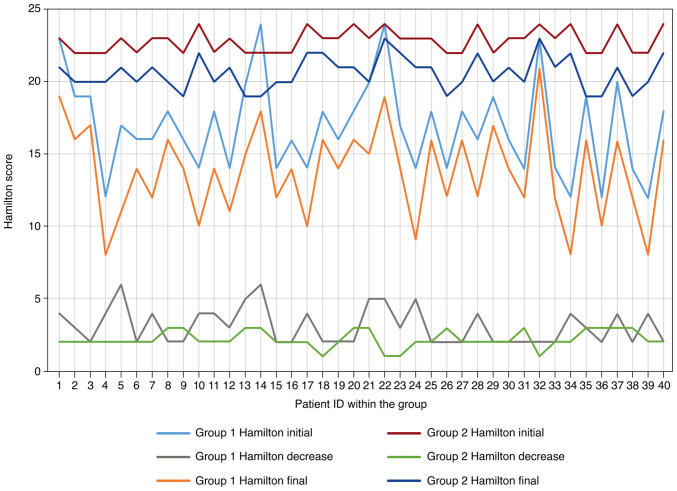Regarding holistic medicine, bioresonance therapy is a fascinating approach that harnesses the power of electromagnetic waves to promote well-being.
This innovative technique is gaining popularity for its purported benefits, although its scientific validity is a subject of ongoing debate.
This article explores bioresonance therapy, its underlying mechanisms, potential benefits for well-being and depression, and possible side effects.
Bioresonance Creates Soothing Sound Waves, Making It a Therapy for Depression
What is Bioresonance Therapy?
Bioresonance therapy is a holistic healing modality that restores balance within the body by utilizing the natural electromagnetic frequencies that every living organism emits.
The concept behind this therapy is that each organ, cell, and even pathogens emit specific electromagnetic frequencies when they are in a healthy balance. These frequencies are considered the “signature” of well-being for the body.
Conversely, disruptions in these frequencies are believed to correspond to disease or dysfunction. These disturbances can lead to imbalances in cellular communication, contributing to the development or exacerbation of various health conditions.
Through the application of corrective frequencies, bioresonance therapy aims to restore the body’s innate equilibrium and promote healing.
How Does Bioresonance Therapy Work?
In bioresonance therapy, specialized devices equipped with electrodes are used. These electrodes are connected to the patient’s skin, typically on their wrists, ankles, or forehead. The device then measures the electromagnetic frequencies emitted by the body.
The underlying imbalances or problems are indicated when the device picks up frequencies that differ from the “normal” frequency linked to healthy cells and tissues.
The bioresonance device then aims to counteract these abnormal frequencies by generating and transmitting corrective frequencies back into the body. This method can help the body regain its natural balance and health.
Bioresonance Therapy Benefits

Bioresonance therapy may offer a range of potential benefits, and while some people swear by its effectiveness, others remain skeptical due to the lack of robust scientific evidence.
Here are some of the commonly claimed benefits of bioresonance therapy:
- Allergy Relief: One of the purported benefits of bioresonance therapy is allergy relief. The therapy aims to identify and correct abnormal electromagnetic frequencies associated with allergens, helping the body become less reactive. Advocates suggest that this can reduce allergy symptoms like sneezing, itching, and congestion.
- Pain Management: The therapy’s proponents believe that rebalancing the body’s electromagnetic frequencies can help alleviate pain and discomfort. This effect could be beneficial for chronic pain conditions.
- Stress Reduction: Stress relief is another claimed benefit of bioresonance therapy. The therapy intends to promote relaxation and emotional well-being by targeting frequencies associated with stress and anxiety.
- Detoxification: Bioresonance therapy can aid in detoxification by identifying and addressing abnormal frequencies associated with toxins in the body. This effect supports the body’s natural detox processes.
Bioresonance Therapy for Depression
The Global Burden of Depression
A 2022 study in the Journal of Experimental and Therapeutic Medicine highlights the benefits of bioresonance therapy as an alternative treatment for depression for patients who choose not to use antidepressants like selective serotonin reuptake inhibitors (SSRIs).
Depression is a globally prevalent condition, often leading to premature death and a significant risk of suicide. Many individuals with depression do not receive proper treatment, especially in poorly developed countries.
Common depression treatments include pharmacological medications like antidepressants (most commonly SSRIs and SNRIs), often combined with psychotherapy.
However, these treatments may have high drop-out rates and lower-than-expected remission rates, particularly for severe depression, leading many with milder forms of the condition to seek an alternative treatment for depression.
Bioresonance Therapy Outperforms Antidepressants
Bioresonance therapy has shown promise in treating various ailments, including depression. On this premise, the study examined two groups of depressed patients.
Notably, this is not the first study that looked into the therapeutic benefits of bioresonance for depression. A 2021 study published in the Journal of Medicine and Life also showed that bioresonance therapy may treat depression as a complementary option.
The first group underwent 5 weeks of bioresonance therapy using a Mora Nova device, which utilized electromagnetic frequencies via hand and foot electrodes. The second group received either newly introduced or ongoing treatment with SSRIs.
Results demonstrated significant improvements in the bioresonance therapy group compared to the SSRIs group. Using the Hamilton Scale, the bioresonance group exhibited a mean improvement score of 3.1, while that in the SSRIs group was only 2.2.
For more information about the Hamilton Scale, this parameter categorizes scores from 0 to 52, indicating normalcy, slight, moderate, and severe depression. Based on this scale, the outcome difference between the two groups was statistically significant.

An Addition to Depression Treatment Options
These findings suggest that bioresonance therapy may reduce the severity of the recurrent depressive disorder, especially in mild and moderate episodes. This therapy can be a viable alternative for individuals who opt against conventional antidepressant treatments, offering a valuable addition to the spectrum of treatment for depression.
However, it’s important to note that further research and larger-scale studies are needed to validate and expand upon these initial findings.
Bioresonance Therapy Side Effects
While bioresonance therapy is generally considered non-invasive and safe, there are a few potential side effects to be aware of:
- Initial Worsening of Symptoms: Some individuals may experience worsening symptoms after starting bioresonance therapy. This phenomenon, known as a “healing crisis,” occurs as the body adjusts to the therapy and releases toxins. However, these symptoms are typically temporary.
- Delay in Conventional Treatment: Relying solely on bioresonance therapy and delaying or avoiding conventional medical treatment can be risky, especially for severe or acute conditions. It’s essential to consult with a qualified healthcare professional before making any treatment decisions.
- False Hope: If patients only rely on bioresonance therapy to address major diseases, they risk receiving a false sense of hope. Hence, maintaining realistic expectations and exploring a balanced approach to healthcare is crucial.
References
Sharma T et al. (2019). Drop-out Rates in Placebo-controlled Trials of Antidepressant Drugs: A Systematic Review and Meta-analysis Based on Clinical Study Reports. International Journal of Risk & Safety in Medicine.
Muresan D et al. (2021). Bioresonance Therapy May Treat Depression—Journal of Medicine and Life.
Muresan D et al. (2022). Bioresonance, an Alternative Therapy for Mild and Moderate Depression. Experimental and Therapeutic Medicine.

